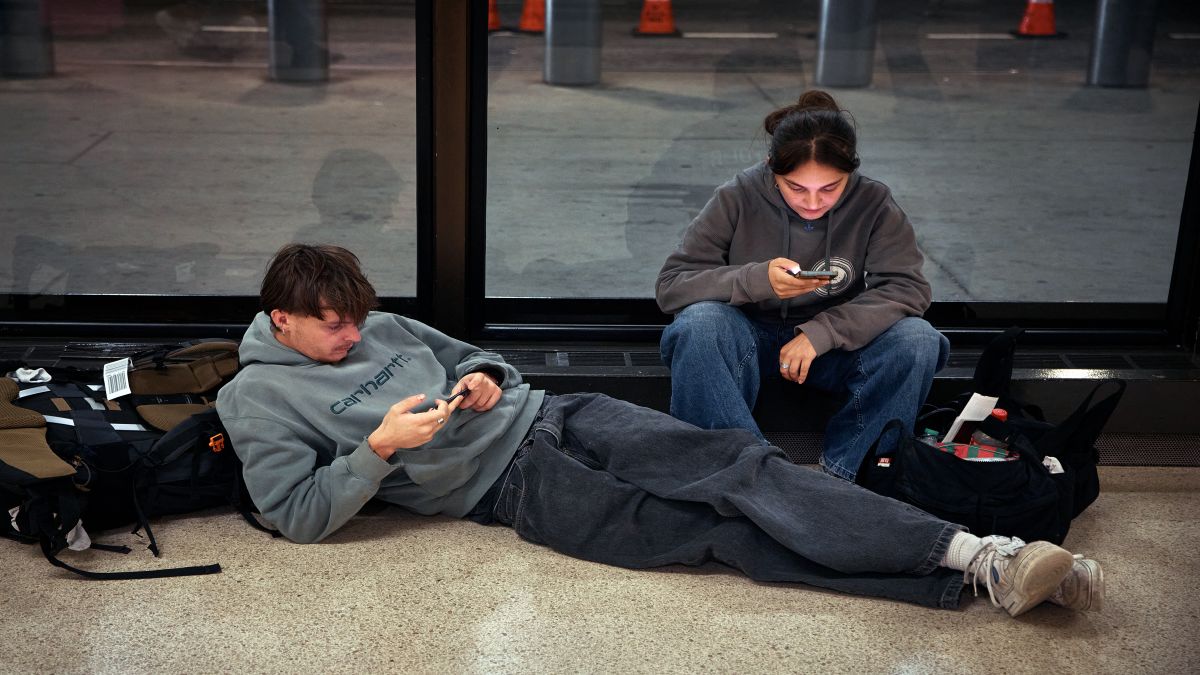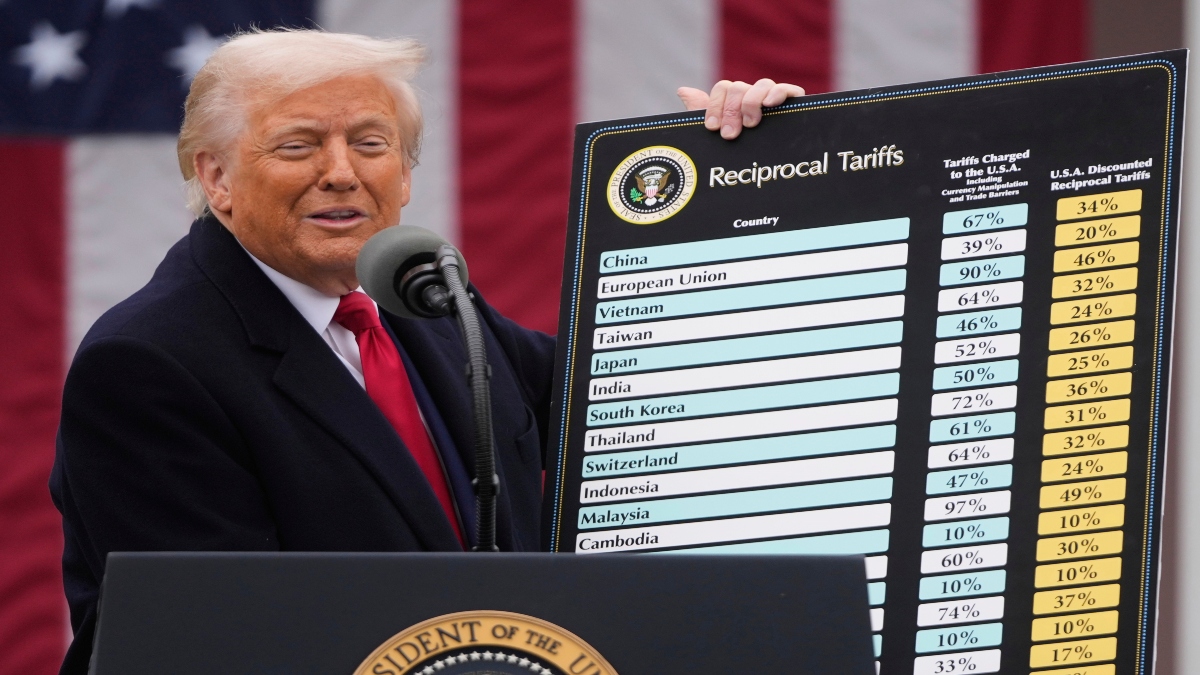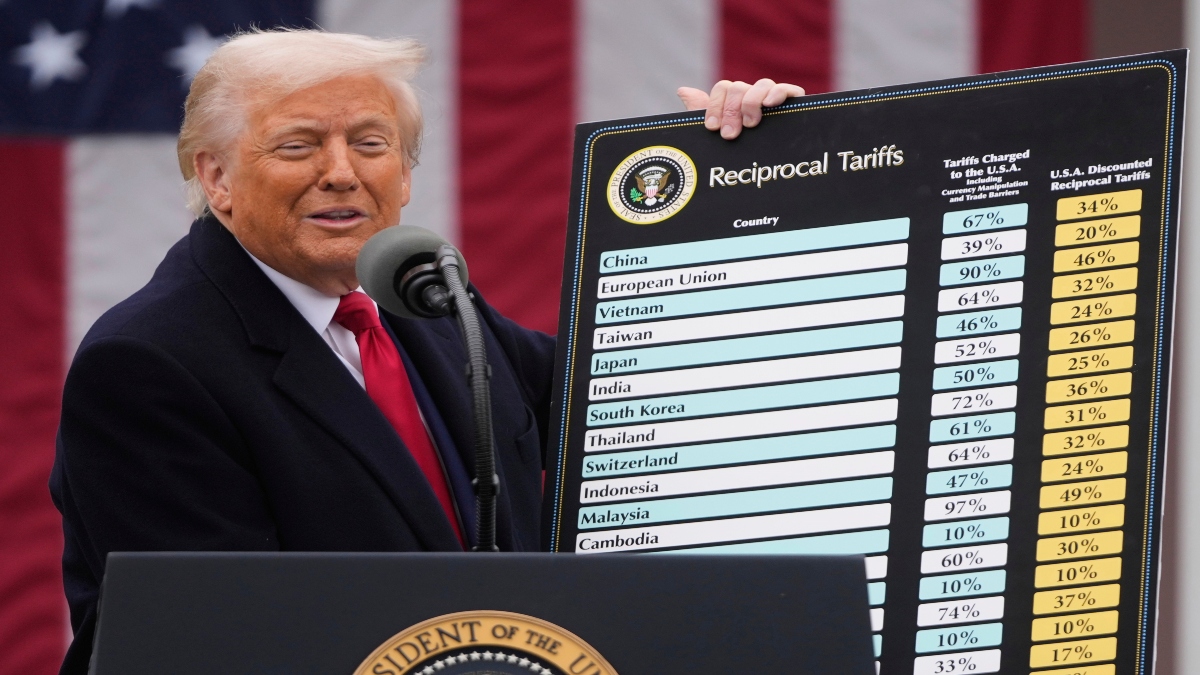In the United States, it’s the holiday season, which means people are planning to travel across the length and breadth of the country on vacation or to meet family and loved ones. But holiday headaches are bound to get much worse this time around, as the government shutdown has led to flight reductions at major airports.
Starting Friday (November 7), 10 per cent of flights at 40 airports will be cut across the country. These reductions come as a means to take pressure off air traffic controllers, who are federal employees and have been working without pay during the shutdown — which has now entered Day 37, making it the longest in US history.
So, what does all of this mean for US flyers? Will international flights also be affected? Here is what we know as the flight cuts begin.
Which airports will be affected?
A total of 40 airports, including some of the busiest ones in the world, will see flight cuts. This includes Hartsfield-Jackson Atlanta International Airport, in Georgia that has frequently been ranked as the busiest airport in the world — it saw more than 108 million passengers get on and off flights there in 2024.
Other airports include the Atlanta airport, Dallas Fort Worth International, Denver International, Chicago O’Hare, and Los Angeles International, which make up the five busiest airports in the US.
The 🇺🇸 FAA announced a up to 40% reduction in flights across the United States as Air traffic controllers have gone unpaid since the government shutdown began on October 1st
— Evan (@StockMKTNewz) November 6, 2025
Here's which airports are expected to see flight cuts via CNBC
ANC - Anchorage International
ATL -… pic.twitter.com/TDRlRs3bof
As per the Federal Aviation Administration (FAA), the flight cancellations will be gradual — there will be a four per cent cut on Friday, which will rise to six per cent by November 11 and eight per cent by November 13. It will rise to a full 10 per cent by November 14.
According to tracking website FlightAware, more than 750 US flights scheduled for today have already been cancelled. American Airlines said in a statement it was reducing its flight schedules “amounting to 220 flights cancelled each day”. Delta Airlines was axing about 170 flights scheduled for Friday, the carrier said, while broadcaster CNN reported Southwest Airlines nixed around 100 flights set for that day.
But, why is this happening?
The flight cuts across the US is a result of the ongoing government shutdown, now in its 37th day. Owing to this, air traffic controllers have been working without pay. But, this has led to many of the controllers calling in sick, resulting in staffing shortages.
Most controllers work mandatory overtime six days a week during the shutdown without pay, the National Air Traffic Controllers Association has said. That leaves little time for a side job unless controllers call in sick to the FAA.
Nick Daniels, president of the National Air Traffic Controllers Association, was quoted as telling NBC News that air traffic controllers are exhausted, demoralised and worried about the future. “It’s unprecedented to go through two full paychecks, 37 days, and receive no compensation,” he said. “So it’s not a matter of calling in sick. They’re calling their employer and saying, ‘I don’t have gas. I have not received pay in 37 days. What do you want me to do?’”
Jeff Guzzetti, an aircraft accident investigator who has worked for both the National Transportation Safety Board and FAA, said that by slashing flights, the FAA “will reduce potential risk of an overworked controller, or an understaffed FAA facility, from making a mistake and running two airplanes into each other”.
So, how long will these flight cuts be in effect?
The reductions come into effect today (November 7) across the US. However, it is unclear when the reduced flights could end. Airlines, unions and the travel industry have urged Congress to end the shutdown, which on Wednesday became the longest on record.
What will be the impact of these flight reductions?
The flight reductions come as the country enters its busiest travel time of the year, with the Thanksgiving holiday just weeks away. The cancellations could affect thousands of flights every day, with one estimate stating that it could include up to 1,800 flights each day and about 268,000 seats.
The flight reductions will also result in ticket prices rising significantly higher. This comes after fares were already forecast to rise by seven per cent to 10 per cent over a year ago during the holiday season, according to data from discount travel site Going.com.
Many travel experts and flight operators have also urged travellers buy backup tickets with another airline to avoid being stranded. United, Delta Air Lines and American Airlines have all said that they would offer refunds to passengers who opted not to fly, even if they purchased tickets that were not normally refundable.
Frontier Airlines CEO Barry Biffle even posted on Instagram, “Don’t book a basic ticket. For example, book economy on Frontier so you can reuse the ticket value as changes are free or you can get a credit. If your flight is cancelled your chances of being stranded are high so I would simply have a backup ticket on another airline.”
And it’s not just passengers who will be affected by the flight reductions. Many people expecting packages should also brace for a delay as two airports with major distribution centres are on the list. FedEx operates at the Memphis, Tennessee, airport and UPS in Louisville, Kentucky.
Will international flights be affected?
The flight cuts in the US are not expected to affect international flights, with Flight Centre CEO Graham Turner telling ABC News, “Generally, international flights will be protected, from what we believe.
“Assuming people are prepared for some disruption, the chances are that the international flights will be the last to be disrupted.”
Even American Airlines said it expects the “vast majority” of its customers’ flights would not be affected and long-haul international service will remain as scheduled.
This, however, could be subject to change in the days ahead, reported Bloomberg.
Has such a situation ever happened before?
FAA Administrator Bryan Bedford said this week that he has never seen these kinds of measures taken before in his nearly four-decade experience in the aviation field.
“We’re in new territory in terms of government shutdowns,” he said.
All in all, US flyers should brace for turbulence in the skies in the weeks to come.
With inputs from agencies


)

)
)
)
)
)
)
)
)



